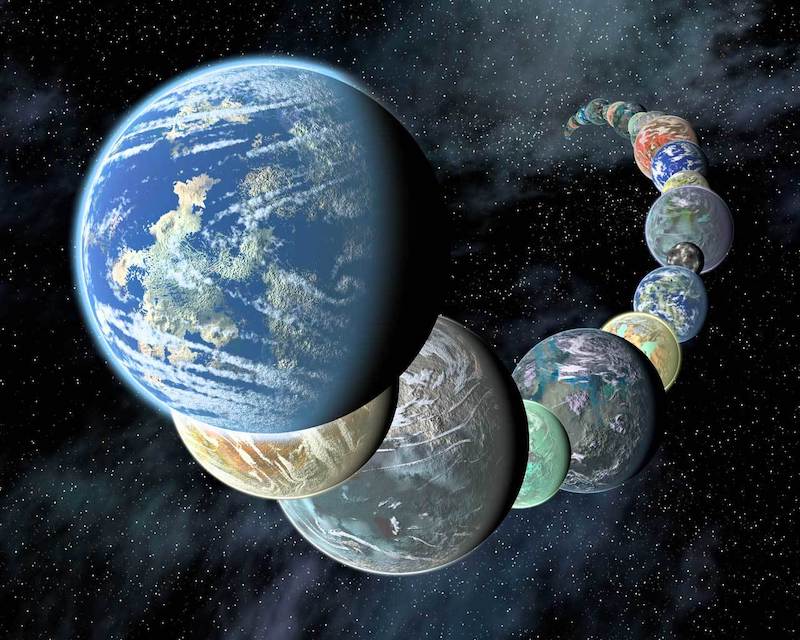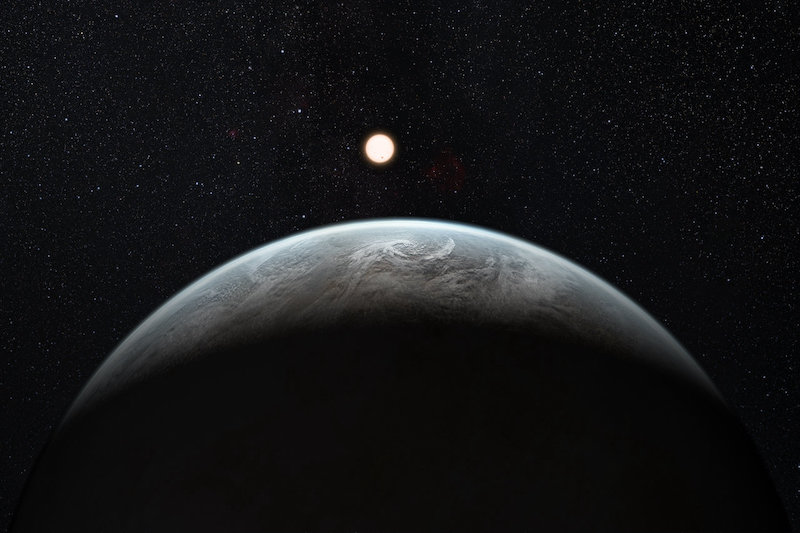
We know that life originated on Earth some 3.7 billion years ago. But we still don’t understand exactly how life came to be. Likewise, we know little to nothing about life on other rocky worlds, even those that might be similar Earth. Is life a rare occurrence, or is it common? Or somewhere in-between? Scientists debate the subject of abiogenesis, the idea of life arising from non-living material. If it can happen on Earth, can it happen elsewhere, too? A new paper from retired astrophysicist Daniel Whitmire at the University of Arkansas argues that it can.
Whitmire published his new peer-reviewed paper in the International Journal of Astrobiology on September 23, 2022.
Abiogenesis and our own existence
Basically, the paper is a counter-argument to the view held by Brandon Carter, an Australian-born astrophysicist. Carter asserts that our own existence constrains our observations of other worlds where life might exist. What does he mean? Essentially, he says, we ourselves happen to exist on a planet where abiogenesis did occur. But – since we only have our own planet as an example so far – it’s not possible for us to determine how likely it is for life to have emerged elsewhere.
Carter says that Earth can’t be considered “typical” yet … because there’s no set of known Earth-like planets to compare it to.
How likely is an Earth-like origin of life elsewhere?
Scientists tend to be conservative. They don’t like to speculate that something exists until they have the evidence in hand. So many scientists seem to accept Carter’s theory. But Daniel Whitmire doesn’t accept it. He contends that Carter is using faulty logic.
He points to what philosophers call the the “old evidence” problem. That philosophical problem is concerned with what happens when a theory or hypothesis is updated, following the appearance of new evidence. Whitmire says basically that Carter doesn’t take into account the long cosmic timescales at play in the universe, for example, the length of time it takes life to emerge on a planet. Whitmire writes:
… The observation of life on Earth is not neutral but evidence that abiogenesis on Earth-like planets is relatively easy. I … give an independent timescale argument that quantifies the prior probabilities, leading to the inference that the timescale for abiogenesis is less than the planetary habitability timescale and therefore the occurrence of abiogenesis on Earth-like planets is not rare.

The conception analogy
Interestingly, Whitmire uses his own birth and existence as an argument against Carter’s theory. He writes:
One could argue, like Carter, that I exist regardless of whether my conception was hard or easy, and so nothing can be inferred about whether my conception was hard or easy from my existence alone.
And he says:
The conception (origin) of me could have occurred if my parents used contraception (conception hard = CH) or if they did not use contraception (conception easy = CE). What is the probability of the hypothesis H = CE, given the evidence that I exist?
His own conception is an example of old evidence, Whitmire said:
However, my existence is old evidence and must be treated as such. When this is done the conclusion is that it is much more probable that my conception was easy. In the abiogenesis case of interest, it’s the same thing. The existence of life on Earth is old evidence and just like in the conception analogy the probability that abiogenesis is easy is much more probable.
Whitmire’s view is simply that the existence of life on Earth is, in itself, meaningful to the question of whether life exists elsewhere. In theory, at least – Whitmire asserts – the presence of life on Earth strengthens the possibility of life elsewhere.
New discoveries related to an Earth-like origin of life
In late September, I wrote about recent discoveries that add to the accumulation of evidence that life does indeed exist elsewhere. In other words – from ocean moons like Europa and Enceladus, to the latest understanding of organics and ancient habitable conditions on Mars – conditions for life seem to abound, even here in our own solar system. In the vast Milky Way galaxy beyond, astronomers have discovered many thousands of exoplanets. So we know other solar systems exist. And, to me, as I write about these discoveries, the odds seem pretty good that life is out there somewhere.
Here’s another example, in the realm of exoplanets. New studies suggest that some (or many) super-Earths might exist as water worlds that aren’t just habitable, but potentially even more habitable than Earth. Some may even be completely covered by oceans.
Whitmire and Carter’s approach – a philosophical approach – to the question of life on other worlds is interesting. But, as the philosophers argue the question, the pace of scientific discovery continues. And many scientists believe we’re now on the verge of finding our first definitive evidence of alien life. Some think it will come within the next decade or two … or sooner.
If Whitmire is right, that first discovery will be exciting indeed.
Bottom line: Retired astrophysicist Daniel Whitmire says that an Earth-like origin of life (abiogenesis) is probably very likely on other rocky worlds similar to our own.
Source: Abiogenesis: the Carter argument reconsidered
The post How likely is an Earth-like origin of life elsewhere? first appeared on EarthSky.
0 Commentaires